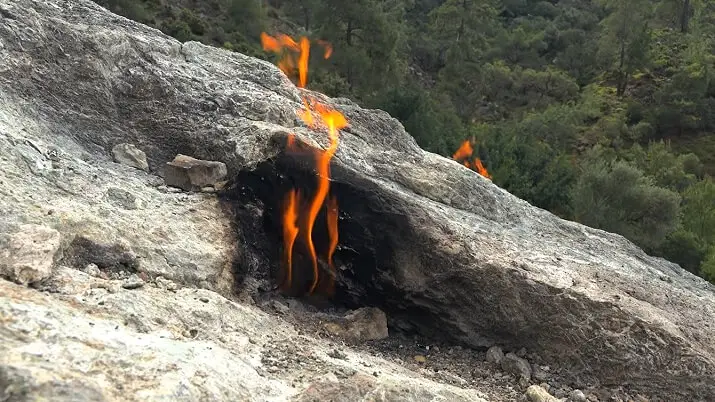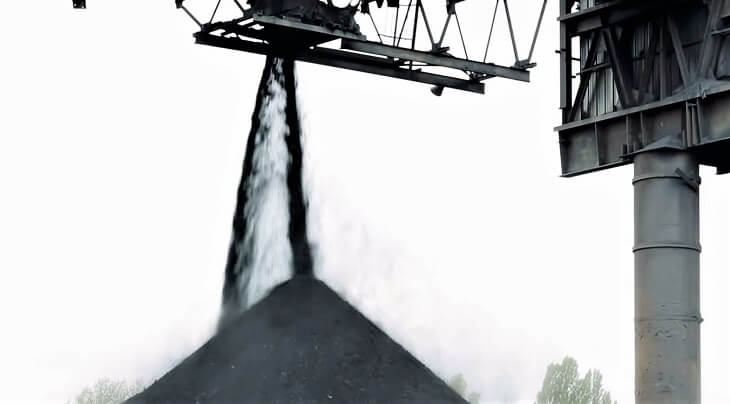Note: This article may contain affiliate links, which means if you make a purchase following our links won’t cost you extra, but we may earn a commission. Learn more
Natural gas is a fossil fuel that formed from the remains of plants and animals that lived millions of years ago. It is a nonrenewable resource, meaning it cannot be replaced once it’s gone. Natural gas is used to generate electricity, heat homes and businesses, and power vehicles.
It’s also an important raw material for many industries, including chemicals, plastics, and fertilizer. The United States has more natural gas than any other country in the world. Russia, Iran, and Qatar are the next largest producers.
The search for renewable energy sources has been a hot topic in recent years, as the world looks to wean itself off of fossil fuels. One potential alternative is natural gas, which is abundant and relatively clean-burning. However, there are some drawbacks to using natural gas as a primary energy source.
For one, natural gas is still a fossil fuel, meaning it emits greenhouse gases when burned. This makes it not much better than other fossil fuels in terms of its impact on climate change. Additionally, natural gas can be difficult to transport and store, making it less practical than other energy sources.
So while natural gas may be cleaner than other fossil fuels, it’s not necessarily the best option when it comes to renewable energy. There are many factors to consider when searching for renewable energy sources, and each situation is unique. Natural gas may be a viable option in some cases, but it’s not the silver bullet solution to our energy woes.

What is Natural Gas
Natural gas is a fossil fuel that is formed when layers of buried plants and animals are exposed to intense heat and pressure over millions of years. The energy that is released from natural gas can be used to generate electricity, power vehicles, and heat homes. Natural gas is a versatile fuel that is becoming increasingly popular as a clean and efficient energy source.
Is there an alternative to fossil fuels?
Is Natural Gas a Fossil Fuel Or Alternative Fuel?
Yes, natural gas is a fossil fuel. It is formed over millions of years from the remains of dead plants and animals.
Related: Is Natural Gas the Cleanest Fossil Fuel?
Why is Natural Gas the Best Alternative among the Fossil Fuels?
natural gas is the best alternative among fossil fuels for a number of reasons. First, it is cleaner burning than other fossil fuels such as coal and oil. This means that it produces fewer emissions of carbon dioxide and other pollutants when burned.
Second, natural gas is a more efficient energy source than either coal or oil. This means that it can be used to generate electricity with less fuel than either of the other two options. Finally, natural gas is a relatively abundant resource in many parts of the world, making it a more affordable option for consumers and businesses alike.

What is an Alternative to Fossil Fuels?
Fossil fuels are non-renewable resources that have formed over millions of years from the remains of dead plants and animals. They include coal, oil, and natural gas, and are used to generate electricity and power our homes and businesses. However, fossil fuels are a finite resource, and their burning emits greenhouse gases that contribute to climate change.
As we look for ways to reduce our reliance on these polluting energy sources, here are some promising alternatives to fossil fuels.
Solar Energy
Solar energy is one of the most abundant renewable resources on Earth, and it can be harnessed to generate electricity or heat water for homes and businesses.
Solar panels convert sunlight into electrical current that can then be used to power appliances, lights, and other devices. Solar thermal systems use sunlight to heat water for domestic use or industrial processes.
Wind Energy
Like solar energy, wind energy is a renewable resource that can be used to generate electricity. Wind turbines harness the kinetic energy of moving air particles to rotate blades that drive an electric generator. The resulting electrical current can be fed into the grid or stored in batteries for later use.
Wind power is one of the fastest-growing forms of renewable energy generation worldwide.
Hydroelectricity
Hydroelectricity uses the force of moving water – from rivers or tides – to drive turbines that generate electricity. It’s a mature technology that has been used since the early 20th century, but its popularity has grown in recent years as dam construction has become more environmentally sensitive.
Small-scale hydroelectric systems are also being developed that could provide electricity for individual homes or communities without a central dam (known as run-of-the-river systems).
Biomass Energy
Biomass refers to organic matter such as wood chips, manure, and agricultural waste that can be burned to generate heat or electricity (or converted into biofuels).
Is Natural Gas a Fossil Fuel?
Natural gas is a fossil fuel and one of the cleanest-burning hydrocarbon gases. It is composed of methane and other constituents, including ethane, propane, butane, and pentane. Natural gas is found in deep underground rock formations or associated with other hydrocarbon reservoirs in coal beds and as methane clathrates.
Natural gas is an important energy resource because it is clean-burning and efficient. When burned, natural gas produces lower emissions of carbon dioxide, nitrogen oxides, and sulfur dioxide than other fossil fuels. Natural gas is also a versatile fuel that can be used in a variety of ways, including heating, cooling, cooking, and generating electricity.
Natural gas is a nonrenewable resource, which means that it will eventually run out. The United States has a large supply of natural gas, but it is not evenly distributed across the country. Some states have very little natural gas, while others have large reserves.
Is Natural Gas Renewable?
Natural gas is a fossil fuel, which means it’s not renewable. It’s formed over millions of years from the remains of plants and animals, and it’s a non-renewable resource because we can’t create more of it. Natural gas is a clean-burning fuel, and it’s the least carbon-intensive fossil fuel.
So why isn’t natural gas renewable? Because we can only extract a limited amount from the ground, and once it’s gone, it’s gone for good. We need to find ways to use less natural gas so that we can preserve this valuable resource for future generations.
Conclusion
Natural gas is a clean and efficient alternative to fossil fuels, according to a new study. The study, conducted by the National Renewable Energy Laboratory (NREL), found that natural gas can help reduce greenhouse gas emissions while providing reliable and affordable electricity. The NREL study looked at how different electric power plants would perform if they run on natural gas instead of coal or oil.
The results showed that natural gas plants emit 50-70% less carbon dioxide than coal-fired plants and 30-50% less than oil-fired plants. In addition, natural gas plants are more efficient than both coal and oil plants, meaning they use less fuel to produce the same amount of electricity. The NREL study provides strong evidence that natural gas can play a key role in reducing our dependence on fossil fuels and combating climate change.
As we move towards a low-carbon future, it’s important to consider all of our options – and natural gas should definitely be part of the conversation.